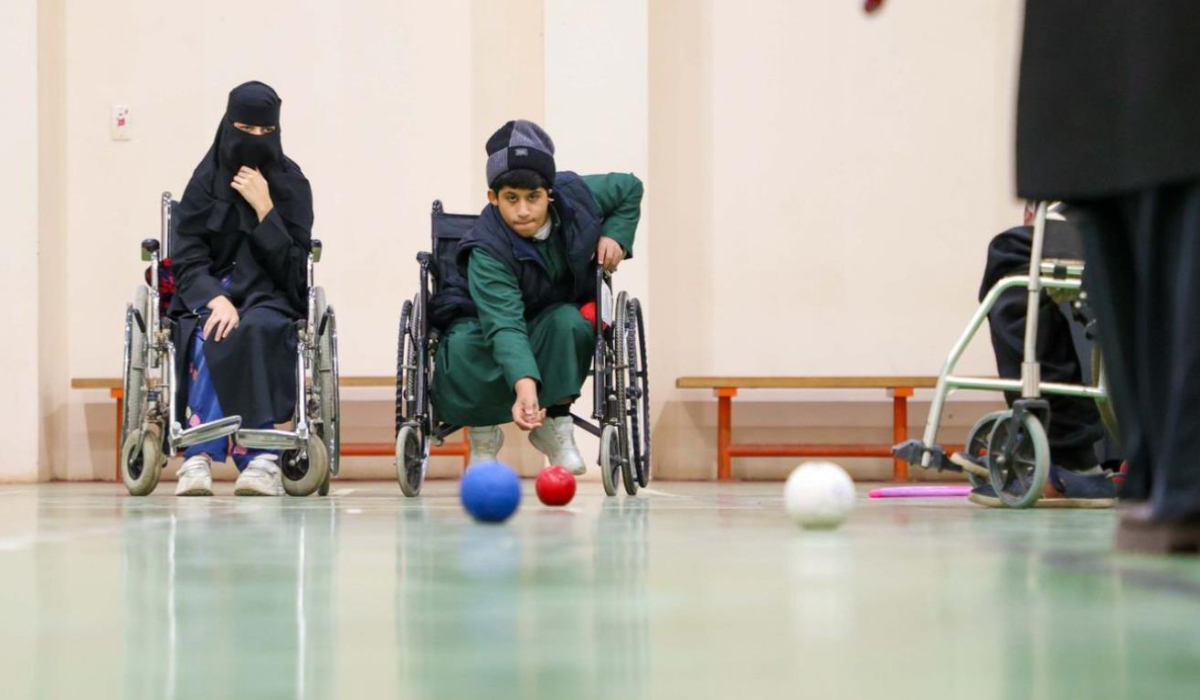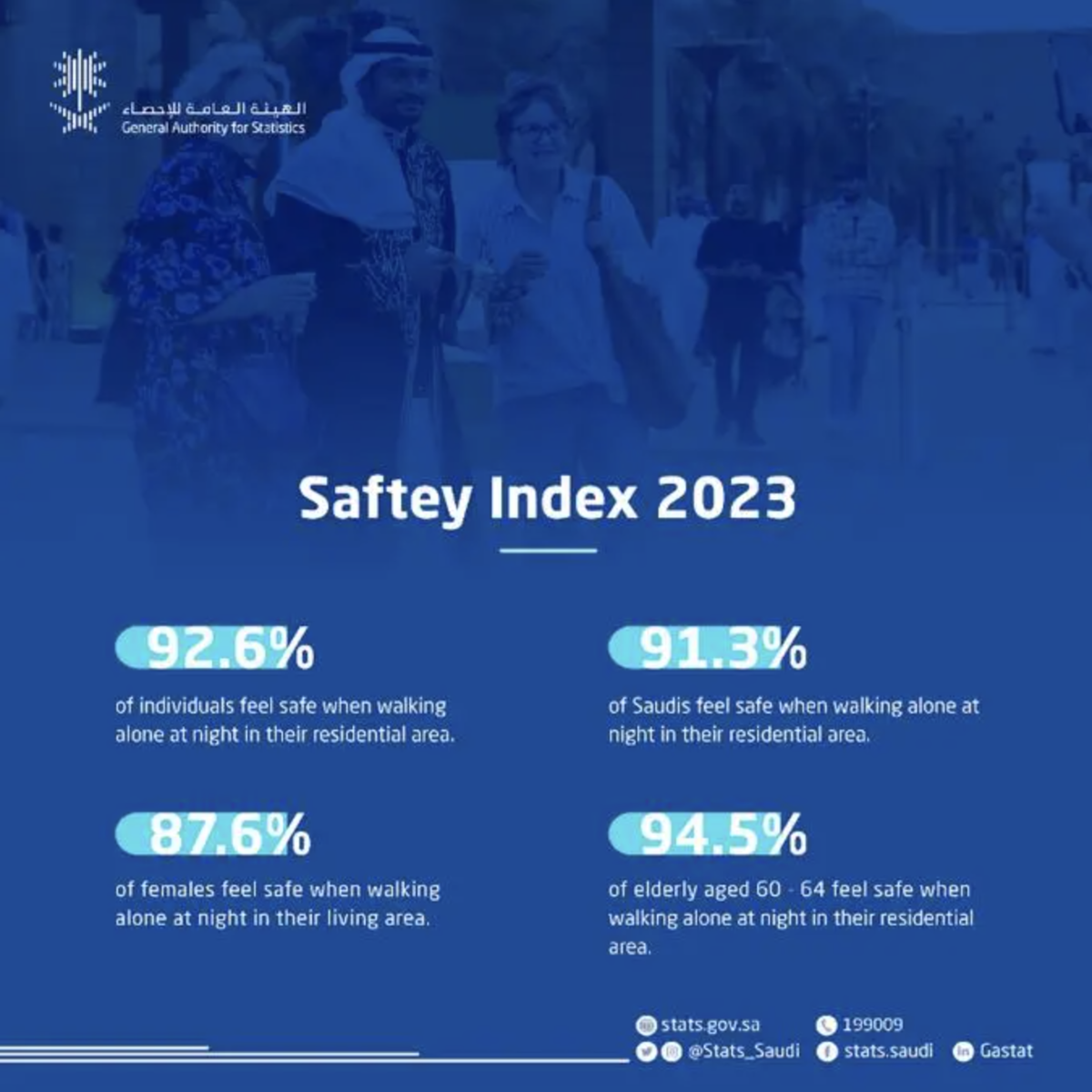1. With 10 years to go, how would you gauge the progress the Kingdom is making toward the FIFA World Cup 2034?
Our dream of hosting the world in 2034 is becoming a reality thanks to the steadfast support from our leadership, our love for the game, our country’s ongoing transformation, and the energy of our young people. Saudi Arabia is already making great strides, driven by our passion for football, and we are incredibly proud of the proposals we’ve put forward to host the FIFA World Cup 2034 in our official bid book to FIFA.
Yet the demand for football in Saudi Arabia is apparent even today, which is why we continue to invest in our Saudi Pro League teams and enable grassroots football with opportunities like never before. We are already well underway with the development of incredible new infrastructure and stadiums that we will be proud to call our football homes.
If we are awarded the honor to host the FIFA World Cup 2034, we are ready to live up to our ambition for the people of Saudi Arabia and the global football community.
2. What were the biggest challenges in making sure Saudi had the best bid?
Saudi Arabia is one of the fastest and most exciting growth stories in world football. It was key that this story — our story — shone through in our bid.
We knew we had to put together a tournament footprint of stadiums, training sites, host cities, accommodation and transportation plans that cater for the needs of the players and fans that would come to Saudi Arabia from all over the world. We had to do justice to our ambition and showcase the best of our ability and our deep-rooted love for hospitality.
3. Did the rise of the Saudi Pro League with Ronaldo and other international superstars play a part in making the bid successful?
We are still in the bidding phase, and it’s important to remember that. We look forward to working with our partners across football in the coming months in the lead-up to the December award announcement.
Our bid is built on the foundations of Saudi’s historic love for football and is a natural step in our journey toward growing the game nationwide. Bringing international football stars to our own professional league catalyzes the development and the success of our clubs. Our Saudi players and fans get to rub shoulders with the world’s best. It brings a global energy and excitement to the millions of fans in Saudi Arabia, and it helps to showcase to the world our country’s true passion for the beautiful game. It’s this passion that is the driving force behind the bid — a passion that has seen our fans follow our national team around the world, including to six different FIFA World Cup tournaments.
4. Going forward, can we expect the Saudi 2034 bid to continue having big-name ambassadors such as Ronaldo, etc.?
We already have millions of bid ambassadors — the people of Saudi Arabia. We are country of football fans, and you can see our love of the game shining through on our journey to bid for the FIFA World Cup. Supporting them are those who have come to Saudi Arabia who can share their positive experiences and reflect on our passion for football, and we invite the world to come to Saudi Arabia to learn more about the Kingdom and experience the remarkable journey we are on.
5. How will Vision 2030 play a part in the 2034 World Cup bid?
Vision 2030 is the driving force behind the bid and is delivering the transformation that makes Saudi Arabia ready to host the FIFA World Cup 2034 thanks to the wise leadership of the Custodian of the Two Holy Mosques, King Salman bin Abdulaziz Al-Saud, and Crown Prince Mohammed bin Salman bin Abdulaziz Al-Saud. The ambitions of Vision 2030 to diversify the Kingdom’s economy and improve quality of life are powering the growth of our sports sector, which has already seen Saudi Arabia host more than 100 international major sporting events, attracting audiences close to three million sports fans.
The giant steps we’ve made in developing our sports sector are thanks to Vision 2030. The Vision provides a clear path forward and hosting the FIFA World Cup 2034 would be the culmination of these efforts, with the entire Kingdom coming together to drive forward our sport’s industry and our wider national infrastructure projects ahead of 2034.
6. When the new stadium for 2034 WC are completed, Saudi will have some of the best venues in the world. How did these unique designs come about?
These stadiums will meet the growing football demand across the Kingdom. We are working with our partners to ensure that they will be used for a variety of purposes — from sports and tourism, to entertainment and live events. Come 2034, yes, they will be used as venues for the World Cup, but we are ensuring all venues have legacy plans in place to ensure high levels of utilization post-tournament.
Each venue has its own unique story, all rooted in the past and the future of the Kingdom. A few examples: The King Salman International Stadium, anchored in King Abdulaziz Park’s masterplan, will contribute to Riyadh’s ongoing transformation and blend into its surroundings, with terrain and natural habitat forming part of the roof; the Aramco Stadium, located in the north of Al-Khobar on the shore of the Arabian Gulf, celebrates the sea’s dynamic nature; and the design of Jeddah Central Stadium echoes the architecture of the historic Al-Balad district.
These are just some examples of the creative thinking behind the design approaches, and we are excited to see these stadia come to life.
7. Beyond the architecture, what can we expect these futuristic stadia to offer the fans in terms of experiences?
As a massive football fan, having seen the best matches whether abroad or on television, I’m very excited about the experiences that these stadia will bring to Saudi Arabia. We recognize there is a long way to go and that development plans for some of the stadiums are still underway, but what I can say is that an immersive and seamless experience for fans is at the heart of our approach. We are committed to delivering an experience that is fitting of our love for the game — this is what drives us.
We will be aiming to host the most digitally connected FIFA World Cup of all time, with our stadiums at the heart of this connected fan experience. The same would be true of our unique FIFA Fan Festival sites; that would be the next best thing to actually being inside the stadium.
We aspire to host the first ever 48-team tournament in a single host country, that allows fans to experience a compact, festival-like atmosphere that brings together more teams and more fans meeting in one place than ever before.
8. What are you hoping will be the tournament’s long-term impact and legacy, both globally and within the Kingdom?
We have a clear vision for our bid: “Growing. Together.”
This is our bid slogan, and it perfectly encapsulates our vision for the tournament — to develop football for our nation and our people, and for the global football community. We want to host the FIFA World Cup 2034 to help support the growth of the game across the world, and ensure football and its values can be enjoyed by all.
We are focused on ensuring our investments drive the growth of football in the Kingdom to meet the demand. We already have some of the best fans in the world and some of the best players in the world playing week-in and week-out in the SPL. When we have some of the world’s best stadiums and football infrastructure we will be the role model of a top football nation.
Our infrastructure plans will deliver both on and off the pitch. We want to enable strong performances from our national and club teams, but we will also provide opportunities for our young footballers to develop their skills in top-class facilities and celebrate their love for the game. We are focused on our next generation of star players for Saudi Arabia to play and compete on the world stage.
Under Vision 2030, Saudi is making significant investments in infrastructure and services, many of which we have included in our bid proposition. Stadiums, transport, and more, are already being built to keep up with booming demand, and we can use these components as part of our tournament footprint. Saudi Arabia’s approach aims to deliver a lasting legacy of positive change through the delivery of a responsible and respectful tournament.
9. How can Saudis and football fans contribute to this national effort to make the 2034 World Cup the best ever?
We are ready and excited to host — and we feel our bid is very strong. One of the most compelling parts of our bid is just how deep our love for football runs in our society — 80 percent of all Saudis are football fans. We want this genuine love for the game to shine through in our bid.
In the lead-up to host selection, we’re encouraging fans to sign up for our “Join the Squad” initiative, which allows them to showcase their pride for the bid and take part in upcoming activities.
You can learn more about Join the Squad here.
10. What is being done at grass roots and at the clubs to ensure that Saudi has the best possible generation of players ready for 2034?
The growth of grassroots programs is at the heart of our football development plans. They are also one of the central components of the wider Saudi Vision 2030 ambition of working to improving quality of life across the Kingdom.
We’re focusing our efforts at the entry points of football, and we’re already seeing some incredible results. We now have more than 300,000 players in the schools’ leagues (boys and girls), and 64 annual youth competitions — up from just ten last year. Regional training centers are booming as well — we have 23 now, up from nine in 2021.
Kids want to play football, and the entire football sector is working hard to ensure they can by providing more opportunities and improving accessibility. Children are seeing their heroes on the pitch here in the Kingdom — Ronaldo, Neymar, Benzema — and are eager to get involved. It’s our collective responsibility to make sure football is as accessible as possible.
11. Finally. With 10 years to go, should the aim be that Saudi Arabia challenges for the World Cup trophy in 2034?
A lot can happen in ten years. Today, we are focused on growing all aspects of the game we love, including the continued development of our national team. Right now, our national team is working toward its seventh FIFA World Cup qualification, which, if achieved, would make it the Falcons’ seventh appearance out of the past nine editions of the FIFA World Cup. Going for the World Cup trophy in any edition of the tournament is the dream of our nation.

































